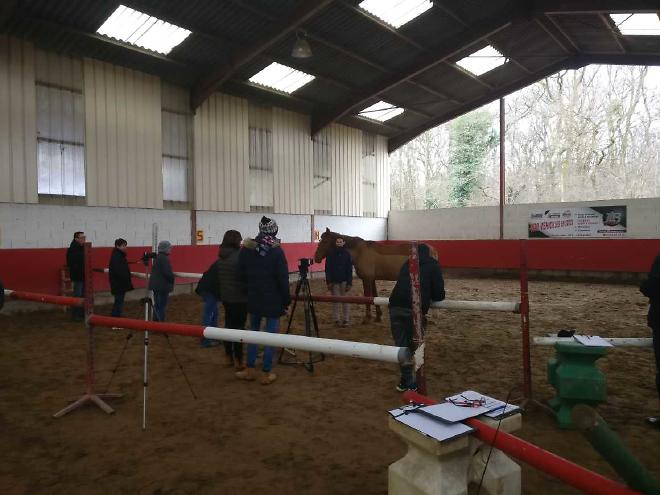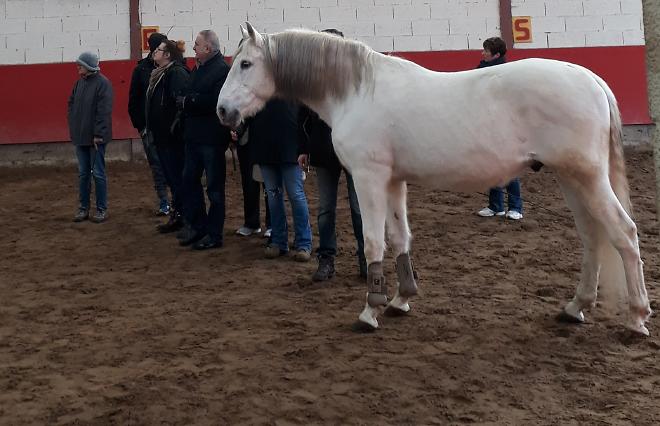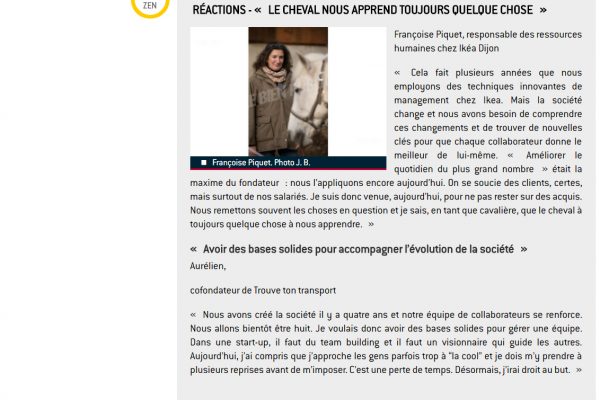Equicoaching seminar with France Protect
Improve interpersonal and extra-personal skills to raise awareness of the needs, limits and strengths of a company’s team, using horses.
Jean-Claude Reynaud
This approach, known as equicoaching, is not a novelty, but a new activity for the Manège de la Tuilerie in Dracy-le-Fort, which wanted to add another string to its bow in terms of openness to others, whether with very young children or adults, as well as the disabled or help in a social environment.
Equicoaching is the accompaniment of a person or a group of people with the help of an equicoach assisted by a horse. A consulting firm, Azimut Partners, set up in 2005 and also based in the Dijon area, is here to help with this approach. It may seem surprising, but it makes perfect sense when you consider that the horse is an animal with exceptional sensory capabilities, which enables it to analyze its environment very finely. Horses can detect what a person is emitting. It knows if it can trust a person and immediately analyzes the behavior. Horses are authentic beings who live in the present moment, and it is this relationship between man and horse that is used in coaching with horses.
For whom and why equicoaching.
Equicoaching is intended for executives, managers and teams, i.e. anyone wishing to develop their interpersonal skills, verbal communication and leadership. It can also be applied to sales teams, either individually or collectively.
This approach involves working on oneself, facilitating access to feelings and learning to use emotions positively, whatever they may be. It’s a way of gaining self-confidence through coherence and self-affirmation.
But also, and this is an important point, to work better with others. If only by helping to set healthy, respectful limits; to develop active listening skills; to promote access to the basics of participative management. You don’t have to be an equestrian to take part in an equicoaching seminar, since all exercises are done on foot, not on horseback, and interaction is with trained and certified coaches.
The horse’s behavior is directly related to the way the person is behaving. The horse acts as a mirror, assessing the person’s level of self-confidence, the clarity of their requests, impatience and irritation, and making them understand. By becoming aware of the consequences of these behaviors, the person can then modify and seize the opportunity to act differently.
It’s a way for the company to manage differently, in a more participative and collaborative way, comparable to no other formula, by putting experience at the heart of learning, a kind of awareness gas pedal and consequently a gas pedal of change.







